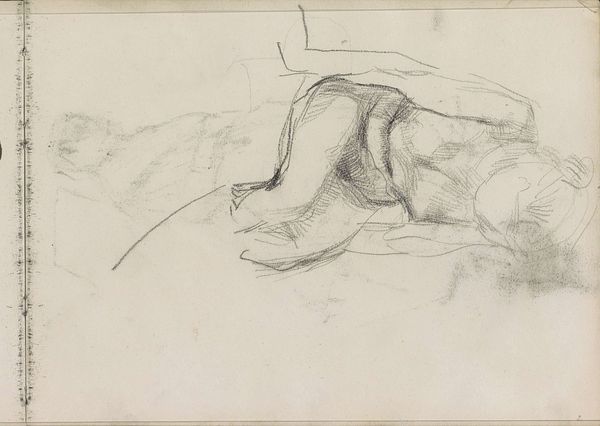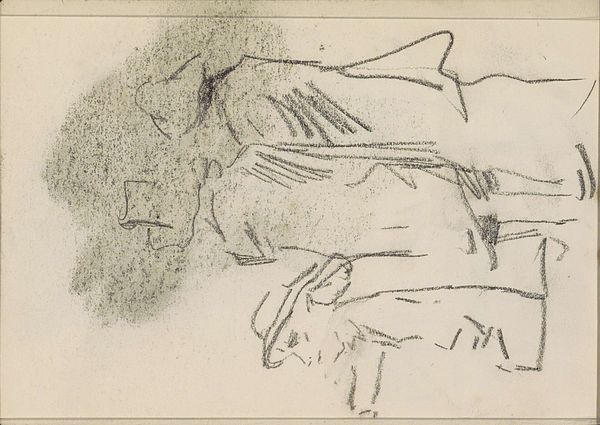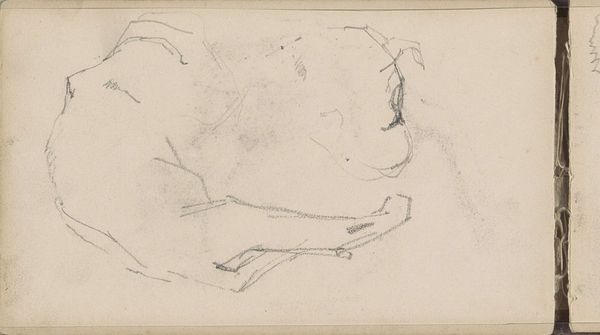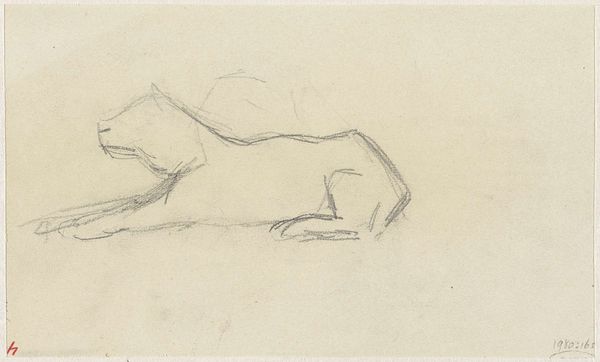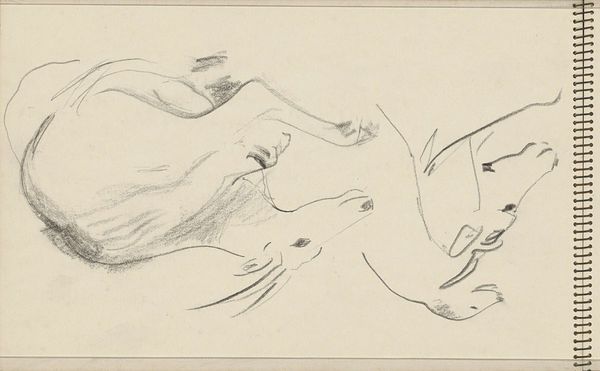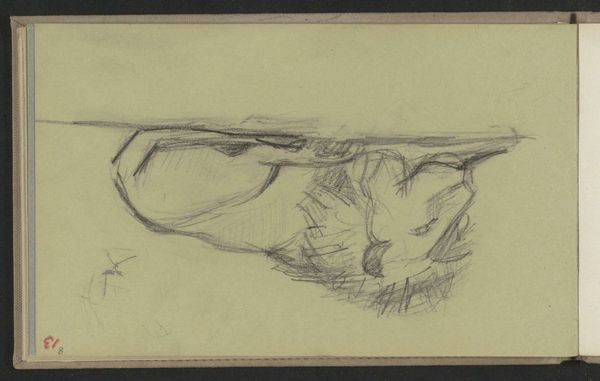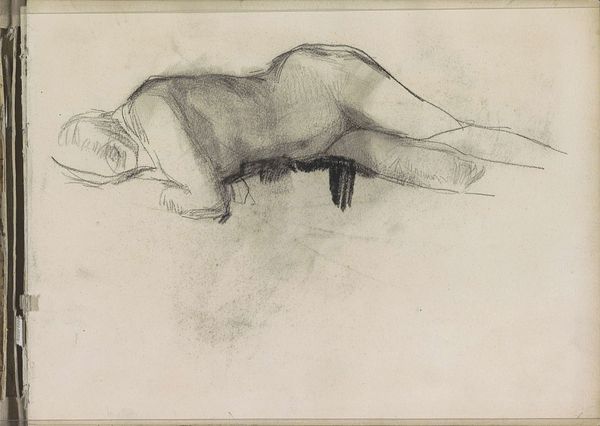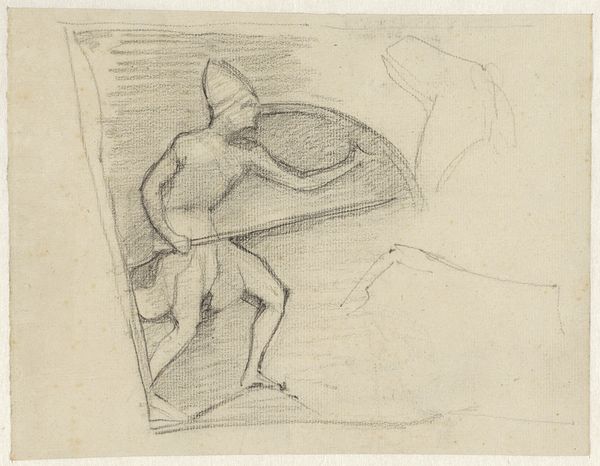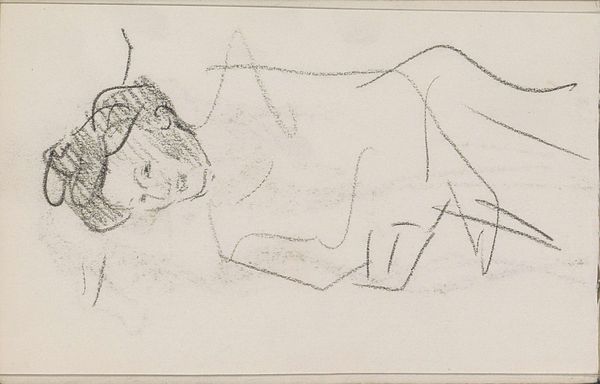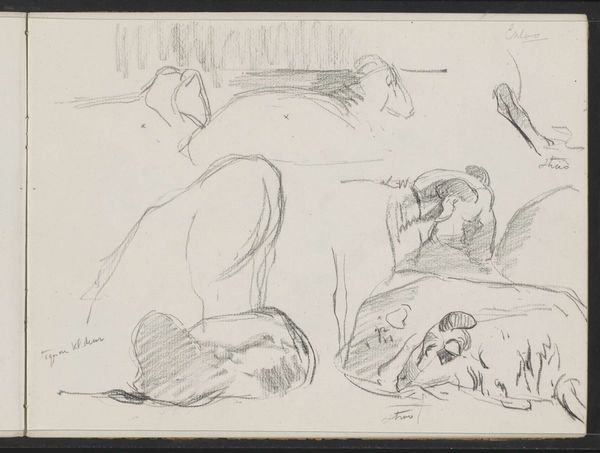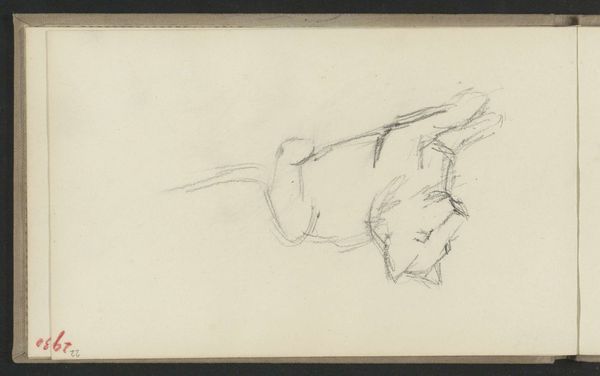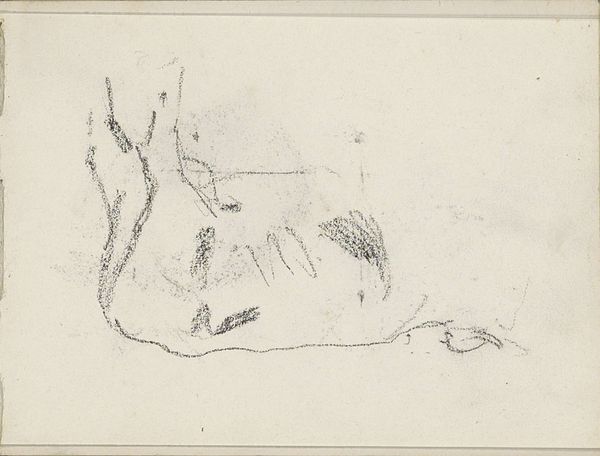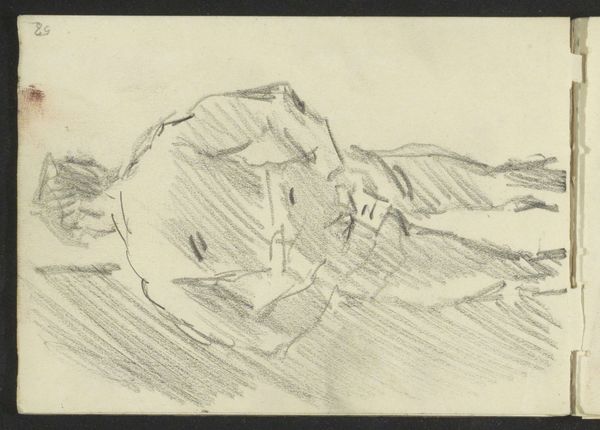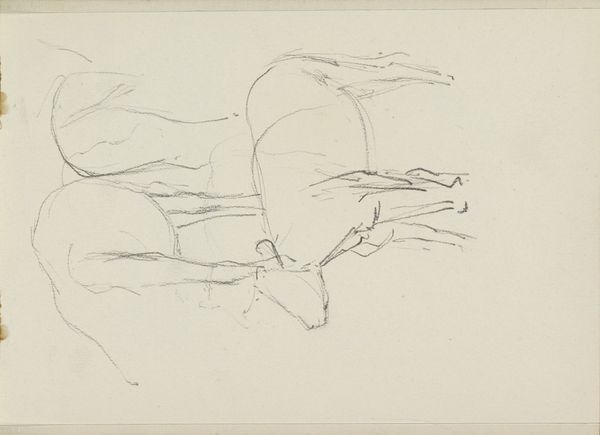
drawing, pencil
#
drawing
#
impressionism
#
pencil
#
nude
#
realism
Copyright: Rijks Museum: Open Domain
Curator: Here in Gallery 14, we have "Standing Nude Women, Possibly Bathers" a pencil drawing by Anton Mauve dating from about 1876 to 1888. It's currently part of the Rijksmuseum collection. What's your immediate response to this piece? Editor: The raw energy strikes me first. The loose, sketchy lines give it a sense of immediacy, almost like a glimpse into Mauve's creative process. There’s a vulnerability in these unfinished figures, stripped bare both physically and representationally. Curator: Mauve's career took place during a time when artistic depictions of the female nude were becoming increasingly common, moving from allegorical and mythological contexts towards more realist portrayals of everyday life. What do you think that contributes here? Editor: Precisely, understanding the social context informs so much about the gaze within it. Mauve's casual and direct sketch avoids idealization. We need to confront those power dynamics inherent in depicting the nude form. How much agency is afforded to the women? Does it serve merely as a practice study in light and anatomy, or are we to find empathy, a sense of individuality here? Curator: Those are critical questions. Mauve likely created this drawing as a study, focusing on the female form. His focus wasn't primarily on political statements, but what's undeniable is that any artistic creation happens within, and thus perpetuates, the social structure that surrounds it. Editor: True, art reflects and shapes our understanding of bodies, genders, power. Examining such artworks in conversation with intersectional thought opens critical dialogues that move past simple aesthetic enjoyment toward societal reflection. It's about seeing beyond the technique, recognizing how such works echo dominant viewpoints and influence culture. Curator: Agreed. Analyzing works like these reveals much more than meets the eye. Art forces us to ask necessary, albeit challenging, questions about identity, agency, and societal expectations. Editor: Exactly. Thank you for drawing out the art, its time and our interpretation with clarity and context. Curator: It's my pleasure. Looking deeply enriches our experience and extends art beyond the aesthetic realm.
Comments
No comments
Be the first to comment and join the conversation on the ultimate creative platform.
